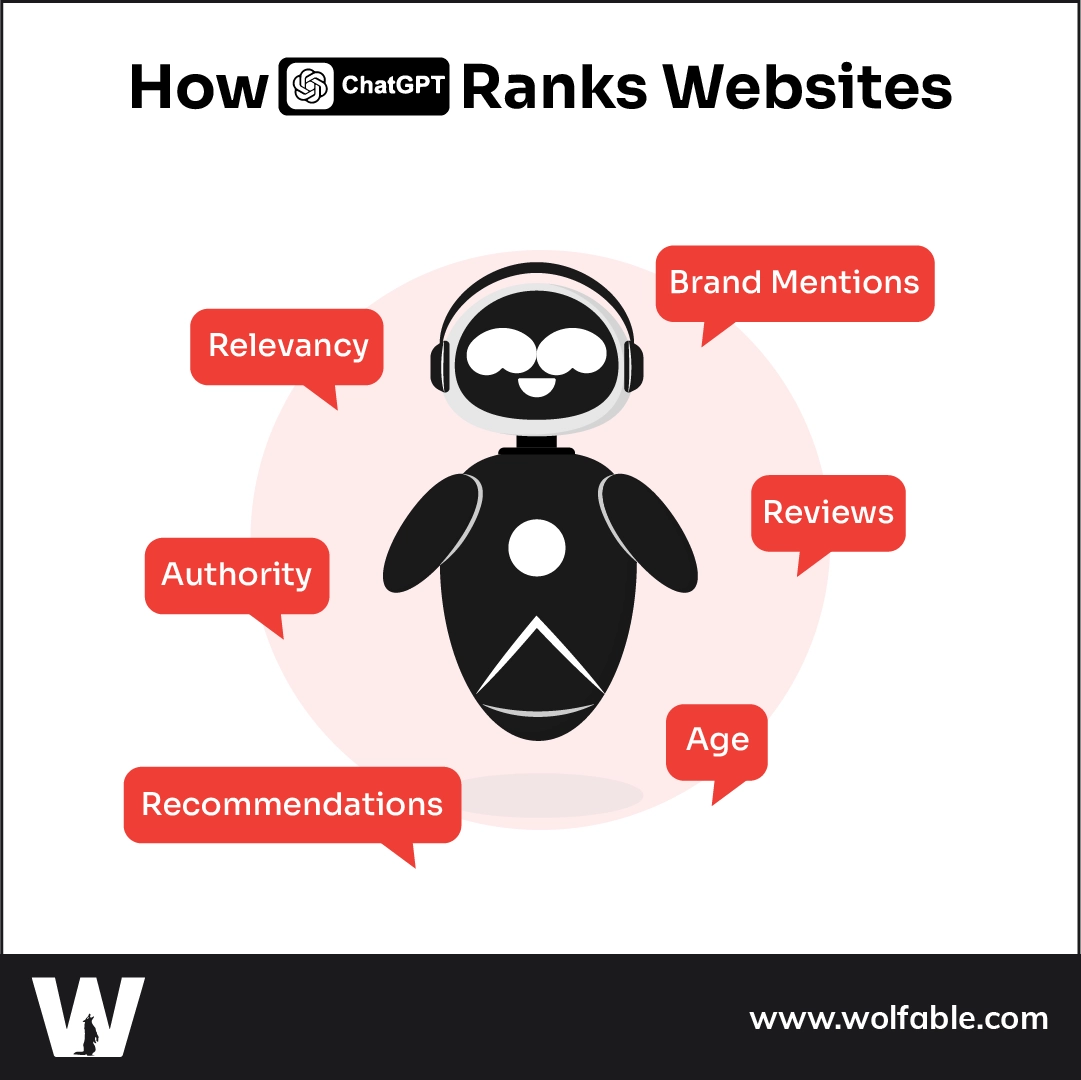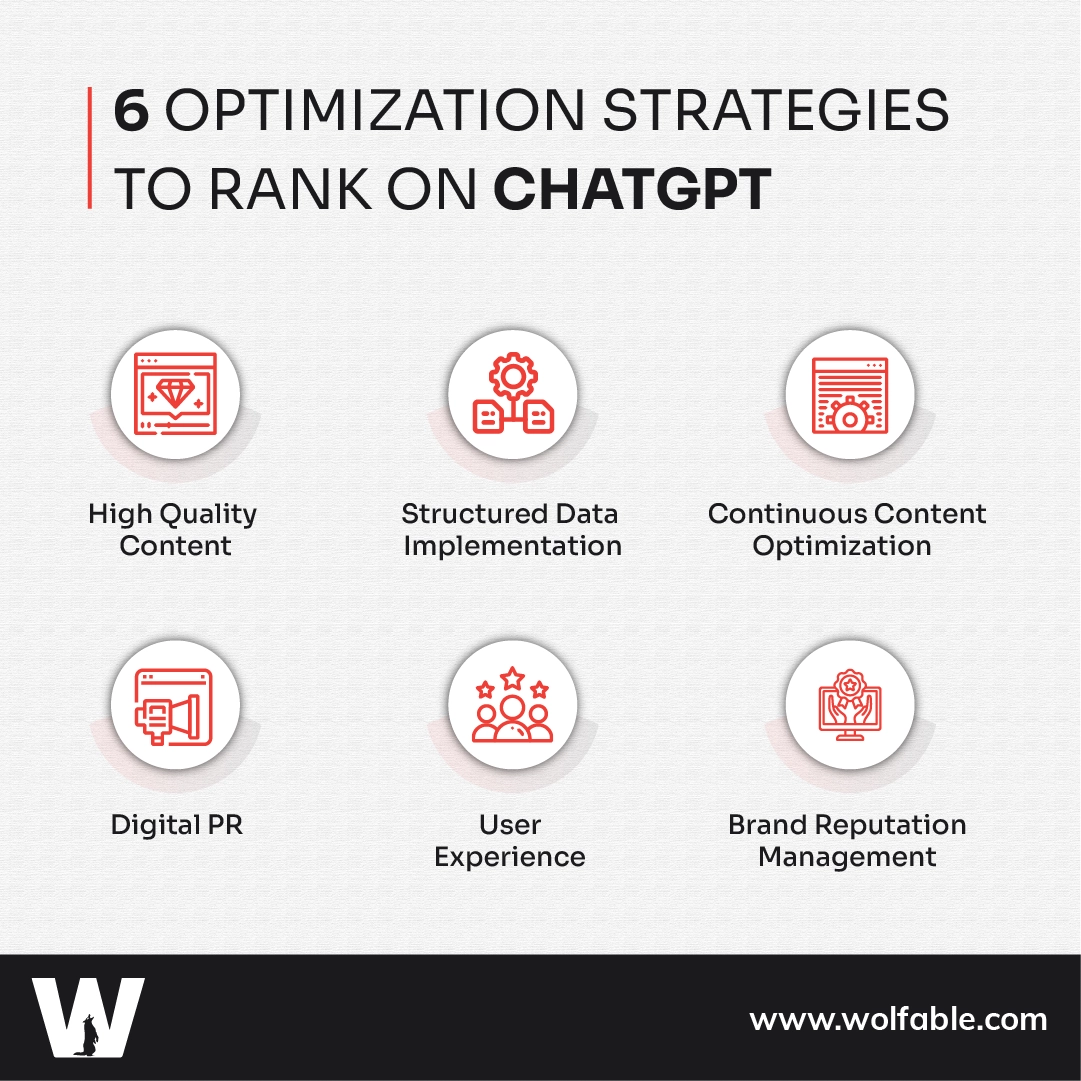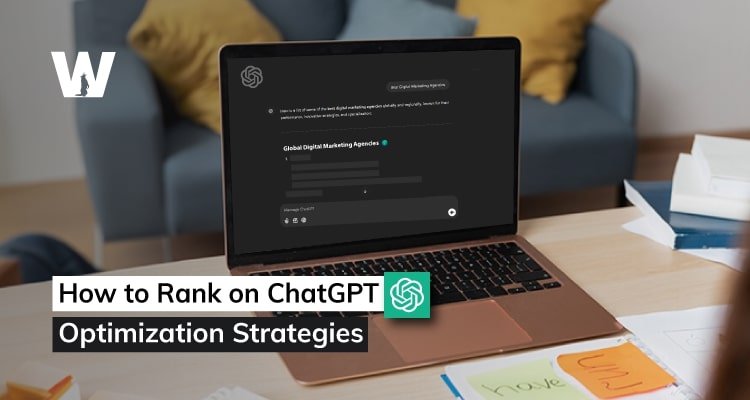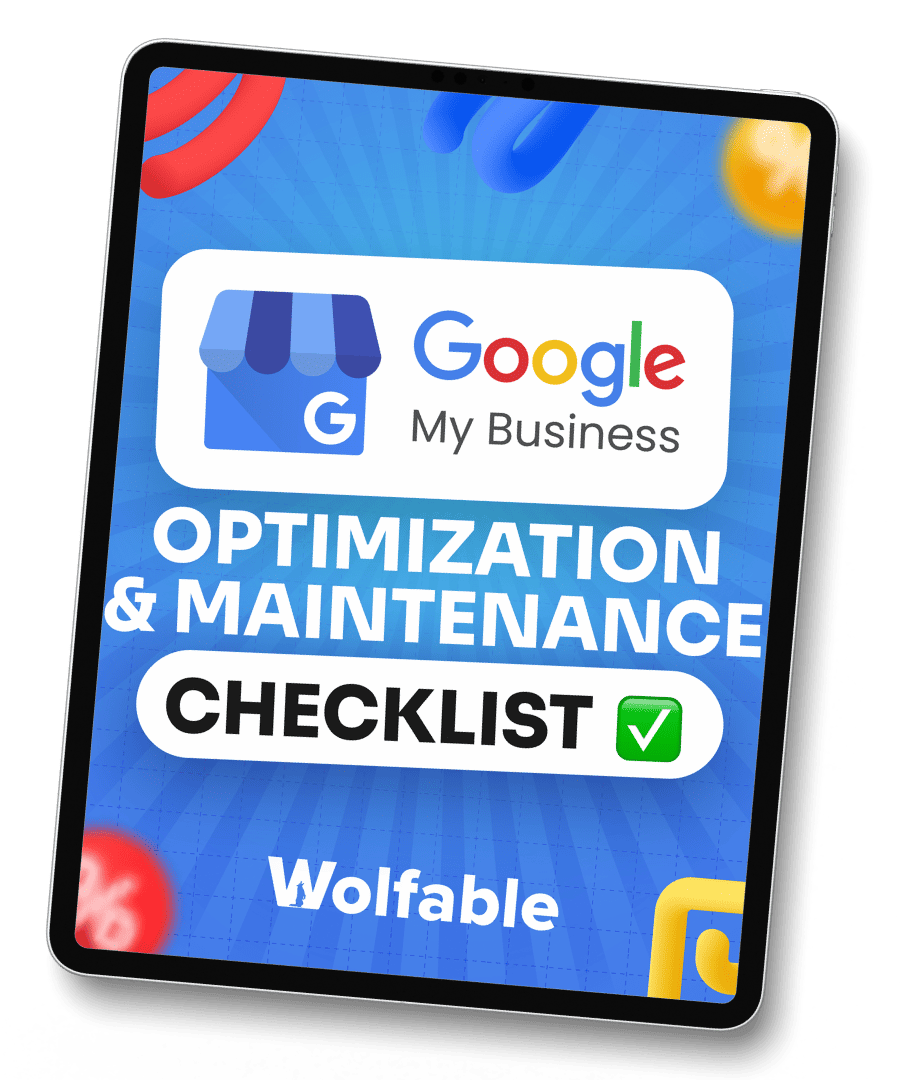Wraps up in 9 Minutes
Introduction
You've probably noticed something different lately.
When you need an answer, you don't just jump on Google anymore.
Instead, you find yourself typing questions into ChatGPT, having real conversations with AI to get what you need.
You're not alone. Millions of people are doing the exact same thing – asking ChatGPT for advice, looking up information, and finding solutions to their problems. This changes everything for your website and your business.
Think about it - if your content is only set up for Google, you're missing out on all these people who are now using ChatGPT instead.
But don't worry – you can fix this.
You just need to understand how ChatGPT is different from Google and what makes it pick certain information over others.
That's exactly why we wrote this guide. We're going to show you seven simple ways to make your website ChatGPT-friendly.
What is ChatGPT?
Before diving into optimization strategies, you need to understand exactly what ChatGPT is and how it works.
ChatGPT is an advanced AI language model developed by OpenAI that can engage in human-like conversations, answer questions, and provide detailed information on a wide range of topics.
Unlike traditional search engines that simply match keywords and display links, ChatGPT processes and synthesizes information to generate original, contextual responses.
When someone asks ChatGPT about a product, service, or topic, it doesn't just list websites – it synthesizes information from multiple sources to provide what it considers the most relevant and accurate response.
ChatGPT’s response often includes specific brand mentions, product recommendations, and information from authoritative sources.
When ChatGPT consistently mentions your brand or cites your content in its responses, you're effectively "ranking" well in its system. This can lead to increased visibility and credibility for your brand in the AI-driven information landscape.
Difference Between Google & ChatGPT
Understanding the key differences between Google and ChatGPT is crucial as you develop your optimization strategy.
Here's a clear breakdown of how these platforms differ in various aspects:
These differences highlight why your optimization approach needs to be different for each platform.
While Google focuses on technical SEO elements and fresh content, ChatGPT prioritizes established authority, comprehensive information, and natural language patterns. Understanding these distinctions will help you develop more effective strategies for both platforms.
Remember that these differences also mean you shouldn't abandon your Google SEO efforts in favor of ChatGPT optimization. Instead, you should develop complementary strategies that allow you to maintain visibility across both traditional search and AI-powered platforms.
How ChatGPT Ranks Websites
Understanding how ChatGPT determines which websites and brands to mention in its responses is crucial for your optimization strategy.
Let's break down the key factors that influence ChatGPT's ranking system:

1. Brand Mentions
The frequency and context of your brand mentions across the internet play a vital role in ChatGPT's recognition of your website.
When your brand is consistently mentioned in reputable sources, industry publications, and relevant discussions, ChatGPT is more likely to include it in its responses.
That means the more quality mentions you have, the more likely ChatGPT is to consider your brand as a noteworthy source in its responses.
2. Reviews
User reviews and testimonials significantly impact how ChatGPT perceives and recommends your brand.
The platform takes into account both the quantity and quality of reviews across various platforms. Positive reviews, especially those that provide detailed, specific feedback about your products or services, help establish credibility in ChatGPT's training data.
However, it's not just about positive reviews - the overall sentiment and authenticity of reviews matter more than perfect ratings.
3. Relevancy
ChatGPT prioritizes content that closely matches the user's query intent.
Your website's content needs to demonstrate clear expertise and relevance in your specific industry or topic area. This means creating comprehensive, well-organized content that thoroughly addresses common questions and concerns in your field.
The more closely your content aligns with specific user queries, the more likely ChatGPT is to reference your website in its responses.
4. Age
The age of your website and content can influence its prominence in ChatGPT's responses.
Established websites with a consistent history of providing valuable information tend to be favored over newer sites. This is because older, well-maintained websites have had more time to build authority and accumulate mentions in ChatGPT's training data.
However, this doesn't mean new websites can't rank well - it just means they need to focus more on building strong authority signals quickly.
5. Authority
Authority in ChatGPT's system is determined by how often your website is referenced as a trusted source by other reputable sites, industry experts, and authoritative publications.
This includes academic citations, expert quotes, and mentions in industry-leading publications. Building authority requires consistently producing high-quality content that others want to reference and share.
So, the more your website is cited as an authoritative source, the more likely ChatGPT is to include it in its responses.
6. Recommendations
ChatGPT's recommendation system takes into account how often your brand or website is recommended by trusted sources in its training data.
This includes recommendations from industry experts, inclusion in "best of" lists, and mentions in buying guides from reputable sources. When your brand is frequently recommended in specific contexts, ChatGPT is more likely to suggest it when users ask related questions.
These recommendations carry more weight when they come from diverse, authoritative sources and include specific details about why your brand is being recommended.
Remember, ChatGPT's ranking system is more about overall brand authority and reputation than technical optimization factors.
6 Optimization Strategies to Rank on ChatGPT
Now that you understand how ChatGPT processes, let's explore seven practical strategies you can implement to improve your visibility on this AI platform.
These proven approaches will help ensure your content gets recognized and referenced more frequently in ChatGPT's responses.

1. High Quality Content
Creating high-quality content is the foundation of ranking well on ChatGPT.
Unlike traditional SEO, where you might focus heavily on keywords and meta tags, ChatGPT values content that demonstrates genuine expertise and provides comprehensive value to readers.
This is why you must focus on creating content that deeply explores your chosen topics. Surface-level articles that barely scratch the subject matter won't cut it. Instead, you’ll need to get to the bottom of each topic, covering different angles, addressing common questions, and providing detailed explanations.
For example, if you're writing about a product, don't just list its features – explain how it solves specific problems, include real-world use cases, and address potential concerns your customers might have.
Your content should also follow a logical structure that makes information easy to digest. Ideally, it should start with foundational concepts before moving on to more complex ideas. This structured approach helps ChatGPT better understand and reference your content when providing answers to user queries.
Additionally, you also need to keep your content current and regularly updated. While ChatGPT's training data has a cutoff date, content that shows consistent updates and improvements tends to be viewed as more reliable.
This means regularly reviewing your existing content, updating outdated information, and adding new insights as your industry evolves.
When you create truly valuable, comprehensive content, you're not just optimizing for ChatGPT – you're building a strong foundation for your overall digital presence.
This approach helps establish your website as a go-to resource in your field, increasing the likelihood of ChatGPT referencing your content in its responses.
2. Structured Data Implementation
While ChatGPT doesn't directly crawl websites like search engines do, implementing structured data helps establish clear context and relationships in your content that can influence how it appears in training data.
This organization of information makes it easier for AI systems to understand and accurately represent your content.
To get started, you should begin with implementing schema markup for your key content types. This includes product schema for e-commerce sites, article schema for blog posts, and organization schema for your business information.
While ChatGPT may not read this markup directly, it helps establish consistent, well-organized information about your brand across the web.
This is why you must keep your schema markup as detailed as possible. For products, you should include specific attributes like prices, availability, ratings, and reviews. For articles, you can incorporate author information, publication dates, and topic categories.
The more structured and organized your content is, the better chance it has of being accurately represented in AI training data.
Another crucial aspect is maintaining consistent NAP (Name, Address, Phone) information across all your digital properties. This consistency helps establish your brand's identity and makes it easier for ChatGPT to provide accurate information about your business when users ask specific questions.
Remember, the goal of implementing structured data isn't just about traditional SEO – it's about organizing your content in a way that makes it easy for any AI system to understand and accurately represent your brand.
3. Digital PR
Digital PR plays a crucial role in how ChatGPT perceives and references your brand.
This strategy focuses on building your brand's presence and authority across various digital platforms, which makes it more likely to be mentioned in ChatGPT's responses.
To implement this strategy, you need to start developing relationships with industry publications and thought leaders. Furthermore, you need to start contributing guest posts, expert commentary, and interviews to reputable websites in your field.
These appearances help establish your brand as an authority and increase the likelihood of being referenced in ChatGPT's training data.
In addition, you should consider creating newsworthy content that journalists and industry bloggers want to share. This could include original research, industry surveys, trend reports, or innovative approaches to common challenges in your field.
When other authoritative sources reference your content, it strengthens your brand's position in ChatGPT's knowledge base.
4. Brand Reputation Management
If you want to start ranking on ChatGPT, you need to start managing your brand's online reputation effectively.
As ChatGPT evaluates your brand's presence and authority, having a strong reputation management strategy becomes crucial for visibility on the platform.
You can start by setting up a system to monitor what people are saying about your brand online. This means keeping track of reviews on different websites, checking social media conversations, and following discussions in industry forums.
When you find reviews or comments about your brand, whether they're good or bad, make sure to respond to them promptly and professionally.
In fact, when it comes to negative feedback, you need to take special care. Instead of getting defensive or ignoring complaints, address them head-on with helpful, solution-focused responses. This shows that your brand takes customer concerns seriously and works to resolve issues.
Remember, building and maintaining a strong online reputation takes time and consistent effort. But when done right, it creates a foundation of trust that makes your brand more likely to be referenced positively in AI-generated responses.
5. User Experience
Creating a great user experience on your website is essential for building trust and authority that ChatGPT recognizes.
When users have a smooth, enjoyable experience on your site, they're more likely to share positive feedback and recommend your brand to others.
You can start with the basics of site speed and performance. In simple words, you need to make sure your website loads quickly on both desktop and mobile devices. Slow-loading pages frustrate users and can lead to negative reviews or comments about your brand online.
This is why you must run regular speed tests and fix any issues that might be slowing down your site.
Secondly, you must design your website with clear navigation in mind. Users should be able to find what they're looking for within a few clicks. When visitors can easily find information on your site, they're more likely to stay longer and engage with your content.
In addition to design, it’s equally important to ensure your content is easy to read and understand. To do this, you need to break up long blocks of text with headings, subheadings, and plenty of white space. Furthermore, use bullet points when appropriate, and include relevant images or videos to help explain complex topics.
Remember, a good user experience isn't just about making your site look nice – it's about making it work well for the people who use it.
When users have a positive experience on your site, they're more likely to share good reviews and recommendations, which can improve how ChatGPT views and references your brand.
6. Continuous Content Optimization
Keeping your content fresh and up-to-date is crucial for maintaining visibility in ChatGPT's responses.
To do this, you need to start regularly reviewing your existing content to find areas that need updating. Look for outdated statistics, old examples, or information that's no longer accurate.
When you find something that needs updating, don't just make small tweaks – take the opportunity to add new insights and expand on the topic with current information.
In addition, you can create content clusters around your main topics. Instead of having scattered articles about different subjects, build comprehensive resources that cover related topics in detail.
For example, if you write about digital marketing, create connected pieces about social media, email marketing, and content strategy that link to and support each other.
More importantly, you must also keep track of questions people ask about your products or services. Update your content to answer these questions clearly, whether through expanded FAQ sections, new blog posts, or updated product descriptions.
The more thoroughly you address real user questions, the more likely ChatGPT is to reference your content when answering similar queries.
Remember, content optimization isn't a one-time task – it's an ongoing process. So, when you regularly update and improve your content, you help ensure that when ChatGPT pulls information about your topic or industry, it's working with your most current and valuable content.
Conclusion
The rise of AI technologies like ChatGPT has fundamentally changed how people discover and interact with information online.
But at the same time, succeeding nowadays require a thoughtful approach that goes beyond traditional SEO tactics. Each strategy we've covered in this guide plays a vital role in helping your brand gain visibility in ChatGPT's responses.
Remember that optimizing for ChatGPT is a long-term commitment. There are no shortcuts – success comes from doing the fundamentals well and adapting to changes as they come.
At Wolfable Digital Marketing Agency, we understand the challenges businesses face.
Our experienced team specializes in helping brands build and maintain strong online presences that perform well across both traditional search engines and AI platforms.
Whether you're just starting your journey in AI optimization or looking to enhance your existing strategy, Wolfable is here to help.
Let's talk about your goals. Contact us for a free consultation.









